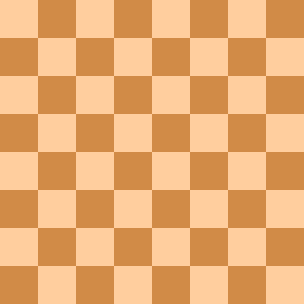Kung-Fu Chess
Kung-Fu Chess was a real-time chess variant developed by Shizmoo Games. It was created in the early 2000s and remained on the company's website until the website shut down in 2008.
The game won the Audience Choice award in the 2002 Independent Games Festival.[1]
Background
The game was conceptualized in the early 2000s by Dan Goldstein as a "real-time" version of chess; it was later developed by him and his brother Joshua Goldstein under the name "Ultra Speed Chess". The name was later changed to "Kung-Fu Chess" to reflect the martial-arts themed sound effects that would play during the players' moves.[2] The game was published by Shizmoo Games on the company's website, and was later supplemented with additional variants (such as Four-player chess, Crazyhouse, and Bughouse chess) before the website shut down in 2008.
The original version was added to the ICQ instant messaging program in 2005.
General aspects
| a | b | c | d | e | f | g | h | ||
| 8 |  | 8 | |||||||
| 7 | 7 | ||||||||
| 6 | 6 | ||||||||
| 5 | 5 | ||||||||
| 4 | 4 | ||||||||
| 3 | 3 | ||||||||
| 2 | 2 | ||||||||
| 1 | 1 | ||||||||
| a | b | c | d | e | f | g | h | ||
In Kung-Fu Chess, either player could move any available piece at any given moment, though only one piece could be moved at a time. After a piece was moved, a predefined delay prevented it from moving again for a short period of time. This, plus the fact that piece movements were non-instantaneous, meant that speed and timing were crucial aspects of the game, as any delay could determine whether a piece was captured or whether said piece dodged the opponent's pieces.
In addition to this, the game's "real-time" aspect led to essential differences between Kung-Fu Chess and standard chess. For instance, checks and pins did not exist in the game, since players were not bound to one move at a time and thus could respond to threats with multiple piece movements. Checkmate and stalemate were similarly both impossible to achieve; as such, the game only ended when one's king was physically captured or if one's opponent resigned.
In following with the martial arts theme, the game also featured a rating system categorized by belt colors.
References
- "2002 Finalists and Winners". Independent Games Festival. Archived from the original on 2014-03-27. Retrieved June 17, 2020.
- http://archive.gamedev.net/archive/columns/interviews/shizmoo.html